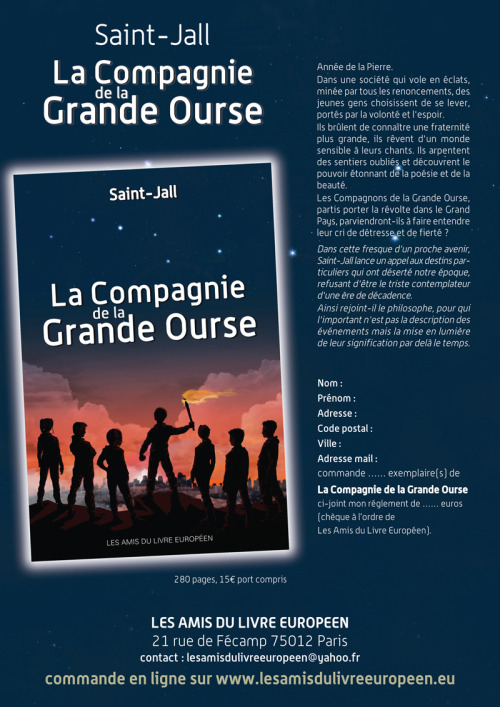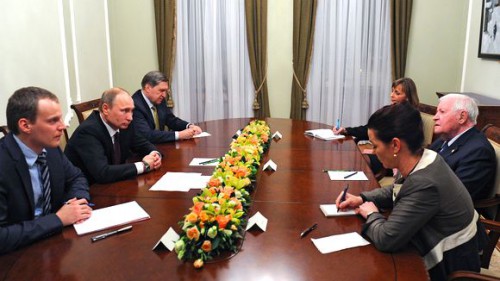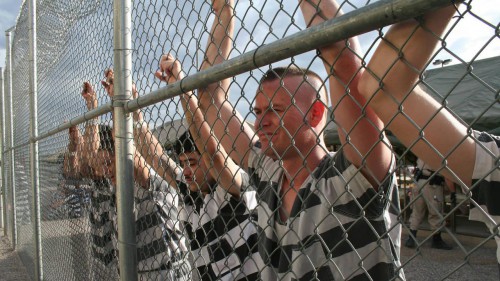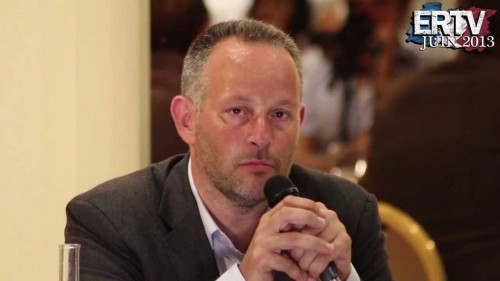Un néoconservatisme antiSystème
Ex: http://www.dedefensa.org
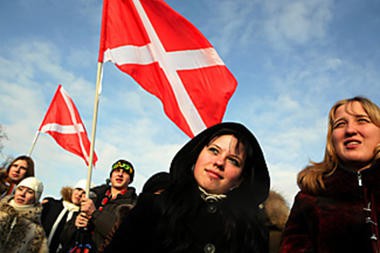 Nous avons déjà fait une rapide incursion dans le discours de Vladimir Poutine devant la Douma, le 12 décembre dernier. C’était dans un texte du 13 décembre 2013, où nous abordions la question d’une nouvelle doctrine stratégique en cours de développement en Russie. (Un autre discours, celui de Dmitri Rogozine devant la même Douma le jour précédent, était cité.)
Nous avons déjà fait une rapide incursion dans le discours de Vladimir Poutine devant la Douma, le 12 décembre dernier. C’était dans un texte du 13 décembre 2013, où nous abordions la question d’une nouvelle doctrine stratégique en cours de développement en Russie. (Un autre discours, celui de Dmitri Rogozine devant la même Douma le jour précédent, était cité.)
Dès ce moment, nous parlions d’un nouveau “conservatisme” dont poutine s’était fait le champion dans son discours, et nous le définissions nous-mêmes, à la fois comme un “conservatisme structurant”, ou “conservatisme antiSystème”. Nous écrivions ainsi : «Poutine a donc également parlé devant la Douma, le lendemain de l’intervention de Rogozine. [...] Poutine a bien entendu abordé tous les sujets : nous reviendrons sur certains de ces autres aspects, en même temps que sur ceux que nous traitons ici. (Les uns et les autres, à côté de leur spécificité, font partie d’une attitude conceptuelle opérationnalisant une conception que l’on pourrait nommer “conservatisme structurant” ou “conservatisme antiSystème” en ôtant au mot “conservatisme” sa connotation politique courante: cette connotation, évidemment péjorative selon “l’air du temps” et le conformisme qui va avec, est faussaire puisqu’imposée par le Système justement, alors qu’on la définit comme antiSystème, donc hors du diktat conceptuel du Système.)»
Plus loin, en développant notre analyse du nouveau concept stratégique, nous étions revenus sur cet aspect plus doctrinal dans le sens ontologique d’une référence à une conception générale dont l’aspect stratégique ne serait qu’une branche. En développant l’analyse de ce concept stratégique et doctrinal, nous en sommes venus à des considérations d’ordre ontologique dans le cadre de la problématique qui nous intéresse de “Système vs antiSystème”, et dans ce cas forces déstructurantes contre structures conservatrices des situations principielles. Cela nous avait conduit à rapprocher la nouvelle doctrine russe qui s’ébauche, de la doctrine nucléaire gaulliste de la dissuasion. La comparaison débouchait également sur cette interprétation ontologique.
«En fait, l’évolution russe nous fait mieux comprendre combien la doctrine gaulliste de la dissuasion constituait également (en plus du fait stratégique), et même surtout une doctrine de type “conservateur antiSystème”. Elle refusait le multilatéralisme, la coopération par entente implicite type-MAD, bref elle refusait la globalisation stratégique en se repliant sur la dimension nationale et sur ses conceptions principielles (souveraineté, légitimité), sur le protectionnisme stratégique, sur la “forteresse” assurée par la possibilité de riposte nucléaire. Le véritable fondement de cette doctrine, d’ailleurs pas nécessairement réalisé puisqu’apparaissant au grand jour aujourd’hui, c’était de refuser d’entrer dans le jeu du Système appuyé sur l’“idéal de puissance” faisant des souscripteurs aux doctrines type-MAD des “complices” pour faire peser l’hégémonie terroriste du Système sur les autres. (On peut voir, dans la Cinquième Partie du premier tome de “La Grâce de l’Histoire”, mise en ligne le 2 décembre 2010, une partie important consacrée à cet aspect prémonitoirement antiSystème de la doctrine gaulliste de la dissuasion nucléaire, – “l’exception française et la G4G”.)»
Ce cadre plus large qui est suggéré ici a été lui-même abordé par nombre de commentateurs, autour du discours de Poutine. Tout cela indique et confirme l’importance que le président russe attache à ce discours, dans le sens où il s’agit d’un acte intellectuel structurant de première importance. Des parlementaires eux-mêmes sont intervenus comme commentateurs du discours, notamment Aleksei Pouchkov and Viatcheslav Nikonov, qui sont des proches de Poutine. Ils sont cités dans un texte de Russia Today du 13 décembre 2013, et notamment dans un passage où ils considèrent l’aspect structurant le plus important du concept évoqué par Poutine, qui est cette sorte de “nouveau conservatisme”, ou d’une nouvelle conception du conservatisme, comme l’explique Nikonov, consistant “non pas à empêcher un mouvement en avant, mais à empêcher un mouvement en arrière”. (Nous apporterions nous-même certaines nuances considérables à cette définition, en observant que cette définition serait plus juste si elle se trouvait amenée à l’idée d’“empêcher un mouvement vers le bas”, sans autre référence explicite, car c’est principalement de cela qu’il s’agit selon notre estimation. La référence principale, qui est désormais une constante de l’évolution russe, est celle de la tradition entendu dans un sens général et contenu dans le concept de “philosophie première” ou “philosophie principielle”.)
«One of the key statements in the address was about Russia's traditional values and the need for them to be protected. “Putin first of all was talking about family values, the values of Russian patriotism, of bringing up children in a traditional Russian way. He described these values as being conservative, but they are conservative in a way not to prevent movement forward, but to prevent movement backward,” Nikonov said.
»Pushkov noted that the president has matched “the traditional values against the so-called new values which are being assorted on societies by minorities, values which have nothing to do with religious roots, with cultural heritage of those countries, and which are basically opposed by the majority of the population.” “The new space of values,” which is now being established in Europe, is “disturbing” for Russia, the MPs stressed. “When you single out a single group [sexual minorities] and say they have special rights, it's also a form of discrimination. We don’t understand it in Russia, thinking that they should be treated as equals and that they should not enjoy a special status or a special program supporting their aspirations,” Pushkov said.»
Comme à l’habitude, Fédor Loukianov, rédacteur en chef du magazine Russia in Global Affairs et proche des milieux politiques dirigeants à Moscou, offre un commentaire intéressant sur la nouvelle approche de Poutine. En effet, il s’agit bien, selon Loukianov, d’une nouvelle approche, et même d’une approche fondamentalement nouvelle. Jusqu’ici la politique russe selon Poutine, ou disons le poutinisme, était “politiquement neutre” en un sens dominant, c’est-à-dire essentiellement pragmatique, précisément selon le sens du mot qui indique la proximité de l’action et les seuls actes concrets pris comme références pour déterminer une politique. («“Pragmatisme” vient du grec pragma, action, ce qui atteste du souci d'être proche du concret, du particulier, de l'action et opposé aux idées abstraites et vagues de l'intellectualisme.»)
Voici quelques extraits du texte de Loukianov, dans Novosti, le 1’ décembre 2013 :«Dans son message annuel au Parlement russe, Vladimir Poutine a pour la première fois exprimé clairement et sans équivoque la philosophie de l'Etat russe : le conservatisme. Ce n’est pas un scoop : les discours antérieurs du président et l'ensemble de la logique des actions du Kremlin ont toujours indiqué que c'est cette école de pensée qui était la plus proche du gouvernement russe. Cette fois le chef de l'Etat a simplement expliqué ce qu'il entendait par cette notion en citant le philosophe Nikolaï Berdiaev : “Le conservatisme n'empêche pas l’évolution, mais protège de la régression, du mouvement vers l'obscurité chaotique et vers un état primitif”. [...]
»Le président – consciemment ou intuitivement – part du fait que tout changement, aujourd'hui, entraînera forcément un résultat négatif. Selon lui, le progrès n'est pas un but en soi mais il doit servir à renforcer les fondements du développement. En revanche, s'il conduit au résultat inverse, qui a besoin d'un tel progrès ? Et qui a eu l'idée de dire qu'il s’agissait d'un progrès ?
»Les anciennes approches des relations internationales et des affaires mondiales sont critiquables, certaines notions sont obsolètes et ont perdu de leur efficacité dans les conditions contemporaines. Il faut effectivement reconnaître qu'elles ont énormément changé. Mais le fait est que rien ne vient prendre leur place. Plus précisément, ce qu'on propose pour remplacer les vieux principes ne forme aucune carcasse et mène uniquement vers des interprétations de plus en plus floues. Et par conséquent vers l'arbitraire, inévitable, qui lui engendre le chaos.
»L'accent mis sur les traditions, que l'on entend depuis longtemps dans les discours du président, a été réitéré dans son message – le désir de trouver quelque soutien est compréhensible. Par définition le conservatisme est opposé à l'idée d’un monde universel. Chaque nation et culture est unique et valorise, avant tout, sa propre identité. [...] C’est un changement significatif car jusqu'à présent la politique de la Russie était explicitement et notoirement non idéologique. Le pragmatisme était considéré comme l'objectif absolu et une valeur phare en politique étrangère. L'idéologie est une notion à double-tranchant et contraignante. Cependant, dans un monde où les images et les points de vue jouent clairement un rôle prédéterminant, un pays qui prétend à une position de leader ne peut pas user d'un simple mercantilisme. Ou simplement nier les idées des autres. Il faut forcément avancer une alternative. C'est risqué car il existe un risque d’erreur, mais en dépit de son conservatisme Vladimir Poutine est joueur.»
Le discours, selon Loukianov, annonce un tournant effectivement fondamental : il s’agit, selon lui de l’idéologisation de la politique russe. Désormais, le poutinisme n’est plus “politiquement neutre” ou pragmatique, il est idéologiquement “conservateur”, – certes, selon un sens qui demande à être explicité, et c’est ici, en partie, le but de notre propos, – et, d’autre part, la cause de notre réticence à employer des termes tels que “idéologie” et “idéologisation”. Ce “tournant idéologique et conservateur” du poutinisme et, plus généralement, de la politique russe, demande à être précisément explicité ; il s’agit d’abord de se dégager des “étiquettes” convenues, liées d’ailleurs à l’“idéologisation”, et qui font en général le jeu du Système. Il s’agit ensuite d’avancer une nouvelle définition, qui permettra de mieux comprendre l’importance et l’orientation de la nouvelle politique russe.
Selon notre conception, on parlera avec le cas Poutine d’un “néoconservatisme” d’une façon assez originale et révélatrice, puisque le terme est déjà pris, pour la partie américaniste (nous l’écrivons également néoconservatisme, mais plus souvent neocon pour faire bref et significatif). Le terme employé pour la partie américaniste est à peu près, dans son approche structurelle, l’exact opposé de la démarche russe, ou encore mieux dit, son exacte inversion. Nous développerons une appréciation du tournant idéologique de Poutine, ou pseudo-idéologique selon nous, en différenciant les deux approches radicalement opposées selon nous, selon un procédé sémantique : d’une part, le “néoconservatisme-neocon” américaniste, d’autre part le “néoconservatisme-poutinien”.
En disant que la démarche poutinienne est elle-même l’inversion du néoconservatisme originel, nous ne parlons que chronologiquement et non du point de vue qualitatif de la justesse des choses. Par rapport à ce qui est nécessaire et juste pour nous, c’est-à-dire la lutte antiSystème, c’est le néoconservatisme-neocon qui est une inversion, dans le sens maléfique de serviteur du Système ; par conséquent, selon cette appréciation, le néoconservatisme-poutinien pratique une inversion vertueuse en rétablissant avec son néoconservatisme le sens antiSystème du conservatisme. (Comme on le verra, le conservatisme selon sa vraie valeur, qui est structurelle et principielle et non idéologique, doit effectivement être perçu comme vertueux puisque nécessairement antiSystème, et adversaire affiché du Progrès en tant que dynamique-Système qui répond à l’objectif de destruction selon le protocole dd&e [voir le 11 novembre 2013]. Cela ne signifie pas “devenir conservateur” au sens de la valse absurde des étiquettes faussaires du temps-idéologisé depuis le début du XIXème siècle, mais utiliser ce qui est utile et va dans le bon sens dans l’enjeu formidable, civilisationnel et eschatologique, de la crise d’effondrement du Système.)
“On ne peut vaincre le Système si l’on n’est pas le Système soi-même”
La remarque essentielle de Loukianov, à partir de laquelle nous développons notre approche, est ce paragraphe repris des extraits : «Le président – consciemment ou intuitivement – part du fait que tout changement, aujourd'hui, entraînera forcément un résultat négatif. Selon lui, le progrès n'est pas un but en soi mais il doit servir à renforcer les fondements du développement. En revanche, s'il conduit au résultat inverse, qui a besoin d'un tel progrès ? Et qui a eu l'idée de dire qu'il s’agissait d'un progrès ?» Comme l’on voit, le terme “progrès” est employé, mais il est employé dans un sens très conjoncturel, alors qu’il ne désigne qu’une dynamique et non une essence en soi. Il s’agit alors de bien éclaircir le propos, et une approche paradoxale à cet égard peut être retrouvée avec un extrait de notre article du 20 février 2012, rendant compte du contenu de dde.crisis consacré à “la crise haute”.
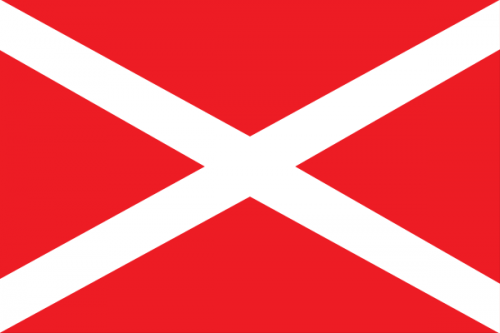
«Pour mieux comprendre cette “bataille de perceptions” entre ceux qui perçoivent une “crise unique” (du Système, de la modernité, de la contre civilisation) englobant toutes les crises sectorielles, et les négationnistes de cela, on peut proposer l’hypothèse de la renaissance de l’Unité ou du Principe Unique. Il s’agit de la notion fondamentale selon laquelle l’unicité de cette crise, alors évidemment perçue comme crise haute, ne peut s’expliquer que par le “progrès” qu’elle recélerait. Ce terme complètement paradoxal dans ce cas de “progrès” fait référence à une interprétation de Daniel Vouga, analysant l’influence essentielle de Joseph de Maistre chez Charles Baudelaire (la plus importante influence de Baudelaire avec Edgar Allan Poe), dans ‘Baudelaire et Joseph de Maistre’ (Corti, 1957). Observant l’emploi laudatif du concept de “progrès” chez Maistre et chez Baudelaire, paradoxe absolu proche de la contradiction impossible pour ces deux penseurs antimodernes par excellence, Vouga observe ceci : “[P]rogresser, pour eux, ce n’est pas avancer, ni conquérir, mais revenir et retrouver... [...] Le progrès donc, le seul progrès possible, consiste à vouloir retrouver l’Unité perdue...”»
Ainsi justifions-nous, à la lumière de cette définition paradoxale de “progrès” selon des auteurs antimodernes et proches de la philosophie principielle, de présenter la notion de “progrès” (ou “Progrès” majusculé), telle qu’on l’entend aujourd’hui et telle qu’on l’entend en vérité depuis le “déchaînement de la Matière”, comme un faux-nez sémantique pour dissimuler l’activité principale du Système, qui est le processus de destruction dd&e. Ce “progrès”-là est bien ce que Loukianov définit dans le chef de Poutine de cette façon, – et alors “progrès” (et acte du Système par conséquent) pourrait avantageusement remplacer le terme “changement” : «[le] fait que tout [progrès], aujourd'hui, entraînera forcément un résultat négatif.»
... Certes, la notion de “progrès” dont parle Vouga à propos de Maistre et de Baudelaire implique, du point de vue opérationnel, et du point de vue métaphysique, une dynamique de structuration tendant idéalement vers le Principe Unique, donc par essence une dynamique principielle. C’est le contraire absolu de la notion courante de “progrès”, ou notion-Système telle que nous la définissons selon l’évolution-Système de notre époque, qui est substantivée par la dynamique dd&e, et par conséquent un processus qui n’est nullement combattu, au contraire qui est favorisé par le néoconservatisme-poutinien. C’est là, dans ce rapport avec la dynamique dd&e, que l’on retrouve la contradiction totale entre le néo-conservatisme poutinien et le néoconservatisme-neocon. Les étiquettes peuvent apparaître alors pour ce qu’elles recouvrent régulièrement ; dans ce cas, l’introduction du concept de “néoconservatisme-poutinien”, même si ce concept n’est que temporaire, a au moins la vertu de réhabiliter le concept de “conservatisme” dans son extension “néo-”, alors qu’il a été complètement perverti, et certainement à dessein par rapport aux forces animées par le Système et dans le chef de ses forces bien plus que des sapiens impliqués, pour pouvoir mieux favoriser des jugements conceptuels faussaires. On s’en aperçoit avec éclat aujourd’hui, où nombre de partisans “libéraux” (“progressistes” dans le sens US) d’Obama, soutenant une politique-Système pire que celle de Bush, s’avèrent bien plus neocons que les adeptes du néoconservatisme-neocon ; la chose vaut évidemment pour la France, comme l’on sait (voir le 7 décembre 2013).
• Le néoconservatisme-neocon a, effectivement, toujours été enrobé de significations et compréhensions paradoxales qui en préparent l’imposture complète que représente ce concept. Certaines de ses origines principales sont sans aucun doute puissamment progressistes dans son aspect déstructurant et dissolvant, puisque, notamment avec son fondateur Irving Kristol, d’origine idéologique trotskiste. Les neocons ont d’ailleurs été démocrates de gauche (autour du sénateur Jackson dans les années 1970) avant de devenir républicains et d’adopter la dénomination de “conservateurs” (“néoconservateurs”). Le terme a donc été utilisé comme une simple étiquette, exactement comme un artefact de relations publiques, tandis que la substance du mouvement, complètement idéologisée, elle, grâce à l’usage d’étiquettes de combat telles que “démocratie” (démocratisation) et “libéralisme économique”, impliquait par nature, un mouvement de déstructuration et de dissolution appliqué dans la politique extérieure (dynamique dd&e). Il s’agissait en substance également d’une complète inversion de la notion de “conservatisme de combat”, antiSystème par définition, puisque l’utilisation de la dynamique dd&e impliquait la notion de “progrès” au sens où l’entend le Système.
• Le néoconservatisme-poutinien ne se définit que par rapport au “progrès” “au sens où l’entend le Système”, et absolument contre lui, dans tous les domaines, – aussi bien stratégique et politique, que culturel et sociétal. La compréhension de cette position n’est donc pas idéologique, mais activiste : c’est une notion de résistance, par conséquent une notion d’activisme antiSystème. On pourrait penser que c’est le premier effort conceptuel qui est fait pour instituer une dynamique structurelle antiSystème, et non plus seulement une dynamique antiSystème conjoncturelle, presque de type “accidentel” (ceux qui la pratiquent ne réalisent pas nécessairement qu'elle est antiSystème). Il est manifeste que cette évolution russe, – à notre sens, Poutine ne fait qu’exprimer une affirmation russe impérative, – était prévisible, identifiable, et c’est elle qui est la cause de la véritable haine sans retour dont la Russie et Poutine font l’objet, d’une façon continue et structurelle, et parfois hystérique lorsque la résistance antiSystème s’affirme, de la part de tout ce qui représente ou relaie, directement ou indirectement, le Système. (En Ukraine, le rassemblement pro-UE est justement défini par Sergei Strokan comme “The new club of Russia haters” [voir Russia Today le 16 décembre 2013], et c’est bien cela qui réunit cette mosaïque d’opposants, sans aucune unité idéologique ni politique, et nullement la farce grotesque de l’amour pour l’Europe, bien évidemment [voir le 17 décembre 2013].) Alors que le néoconservatisme-neocon avait (il est en lambeaux aujourd’hui, puisque seul un Hollande s’y intéresse encore) pour mission d’être un faux-nez pour le “progrès” (le “progrès”-Système) aux yeux de ceux qui prétendent encore refuser le “progrès”, le néoconservatisme-poutinien a pour mission de désacraliser le “progrès”, de lui ôter sa dimension fascinatrice, et donc d’attaquer spécifiquement le “progrès”-Système.
Tout cela étant posé, il nous apparaît aussitôt impératif de préciser que nous ne croyons pas une seconde, – nous l’avons souvent dit dans le même sens, – que Poutine se pose comme une alternative valable au Système, capable de vaincre le Système, ni même de l’inquiéter vraiment. On ne peut vaincre le Système si l’on n’est pas le Système soi-même... Mais on peut lui opposer une telle résistance, essentiellement conceptuelle, notamment en agitant des conceptions principielles un peu comme l’on agite le chiffon rouge pour rendre plus furieuse encore la Bête pour soudain bouleverser et rendre folle sa surpuissance, que le Système s’engagera encore plus profondément, encore plus rapidement, encore plus inexorablement dans son processus d’autodestruction. C’est le rôle que joue déjà la Russie, dont l’activisme depuis 2011 et la Syrie a conduit les pays du bloc BAO, donc le Système, à d’innombrables erreurs, à des enchevêtrements d’erreurs, avec une usure psychologique à mesure qui produit à nouveau d’autres erreurs et les embourbent dans des cas similaires et potentiellement de plus en plus explosifs (l’Ukraine, dont la déstabilisation affecterait beaucoup plus, à notre sens, l’UE elle-même voire l’OTAN que la Russie, qu’elle unirait dans la lutte contre un danger pressant).
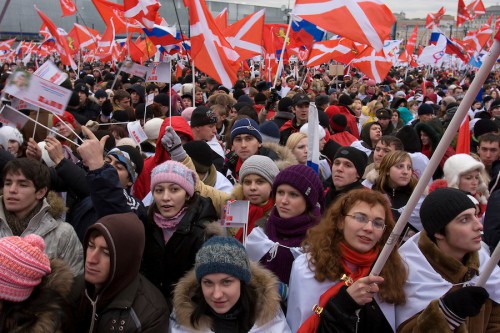
Il faut bien comprendre que ce bloc BAO, que ce Système si absolument surpuissant est nécessairement, par un rapport inverti de cause à effet, si absolument impuissant. Le cas militaire est ici un bon observatoire : le désordre-BAO, l’accumulation d’erreurs, cette façon à la fois de mépriser la Russie comme partie négligeable, à la fois de s’effrayer considérablement de sa supposée puissance, est une mécanique qui pourrait être assurée dans certaines circonstances de mener à une confrontation militaire à laquelle les pays du bloc BAO ne sont plus partie prenante, pour des raisons profondes de démobilisation psychologique. C’est une porte de sortie éventuelle pour le centenaire de la Grande Guerre ; il y en a d’autres ... (Ainsi faut-il préciser que “le cas militaire” n’est pas et ne doit pas être considéré ici comme l’enjeu central de la crise européenne en nième version, en formation accélérée, qu’il n’est qu’une voie qui n'est pas nécessairement décisive précipitant la crise, qu’il y a d’autres voies comme par exemple le désordre auto-dissolvant et autodestructeur au sein du bloc BAO/du Système.)
Un point important à cette lumière, pour conclure sur ce sujet, est d’admettre que le néoconservatisme-poutinien qui vient d’être déclaré, abandonnant effectivement le pragmatisme assez neutre qui animait la politique russe, est un pas en avant considérable dans une attitude d’hostilité déclarée de la Russie au Système. (C’est avec la Syrie, bien sûr, que les Russes ont perdu leurs illusions à ce propos et commencé leur “médiation” vers le pas essentiel de l’engagement antiSystème structurel [voir le 13 juin 2012].) Cela ne promet rien d’autre, – mais c’est déjà si important que cela en est essentiel, – qu’un nouveau palier dans l’affrontement, dans l’agressivité entre Système et antiSystème, et cette fois avec les Russes qui s’affirmeront d’une façon beaucoup plus effective qu’ils n’ont fait jusqu’ici. Sans doute n’ont-ils pas négocié ce tournant de gaieté de cœur, eux qui ont cherché essentiellement à équilibrer et à stabiliser les relations internationales, mais ils n’avaient pas le choix à cet égard parce que le Système tient irrévocablement une course d’agressivité et d’antagonisme.
Extrait du Tome II, Cinquième Partie, de La Grâce de l’Histoire
Comme nous le faisons épisodiquement, nous allons publier, pour approfondir notre commentaire, un extrait de La Grâce de l’Histoire. Il s’agit d’un extrait du Tome II (Le Deuxième Cercle), dans sa Cinquième Partie intitulée Invertir la “contre-civilisation” ... Ce que nous cherchons à suggérer avec cet extrait, c’est la complexité des termes de “conservatisme” et de “progrès”, à partir du moment où s’est faite sentir l’interférence du Système (à partir du “déchaînement de la Matière”). Aussi suggérons-nous de considérer ces concepts comme maniables, sinon inversables, et de ne les prendre qu’avec une “explication de texte” et sans contrainte idéologique. Ce qu’il nous importe de montrer, au contraire, c’est l’importance de références telles que la Tradition et l’expérience du passé, essentiellement des Anciens d’avant notre civilisation dans ce cas, dès lors qu’on s’est débarrassé des scories de la pensée que sont les termes vues ci-dessus et phagocytés par le Système.
Notre propos, dans cet extrait, est de nous amener à considérer l’importance de l’enseignement du passé pour notre crise actuelle, jusqu’au point central de cette crise qui est l’archétypique production du “progrès”-Système, sous la forme opérationnelle du phénomène du technologisme et de ses effets sur la situation du monde. Ainsi expliquons-nous, dans cet extrait, comment nous sommes conduits à faire du véritable passé notre référence, à explorer la question du rapport entre les Anciens et des technologies, donc la question de ce qui est la centralité de notre crise. (On a vu un autre extrait de la même Partie dans ce sens, mais plus avancé dans cette exploration, notamment appuyé sur la référence au philosophe des civilisations Toynbee, le 4 novembre 2013.) L’extrait envisagé décrit le processus intellectuel qui y conduit en écartant avec mépris et décision les diktat du Système lorsqu’il s’agit de nous imposer une conception du conservatisme, du “progrès” et ainsi de suite. Ce faisant, nous entendons également montrer que le néoconservatisme-poutinien, s’il se développe, s’il joue son rôle de trublion excitant la Bête jusqu’au comble de la fureur autodestructrice de celle-ci, sera conduit à mettre tout en question, – y compris les artefacts fondamentaux du progrès, y compris le technologisme par conséquent.
« Par conséquent, il est question de l’Histoire et même de l’au-delà de l’Histoire, dans sa chronologie, lorsque surgit la dimension métaphysique. Cette chronologie se comprend et se justifie comme un enchaînement pérenne dont la source originelle jaillit de ce que, à l’exemple de beaucoup d’autres et pour signaler de quel parti l’on est, nous nommons la Tradition. (Mais c’est de “monde”, du kosmos qu’il faut parler, nullement de “parti”...) Alors, pour mieux avancer, et enrichir encore la compréhension de notre destin, peut-être en deviner la perspective, on ne peut qu’épouser cette évidence qu’il importe de tourner sa pensée vers le passé le plus lointain. Cette orientation justifie parfaitement l’affirmation précédente concernant l’importance de la Tradition dans notre propos ; mais, certes, faire la démarche de la façon qui importe réalise l’exact contraire de ce que perçoit l’esprit commun forgé par la modernité qui est qu’en se tournant vers le passé l’on se perçoit, implicitement mais puissamment, comme rétrograde, désuet, dépassé, abaissé, – passé de mode, si l’on veut, plus du tout “tendance”... Cette conception est évidemment, pour nous, dépourvu de sens ; “se tourner vers le passé”, c’est-à-dire faire cela à la façon que définissait excellemment Evola, déjà cité, lorsqu’il parlait de la pensée traditionnelle ; et nous préciserions, selon notre propos, avec une traduction différente d’un des mots, indiquée entre crochets, au risque du pléonasme : « C’est une pensée “originelle”, elle ne [recule] pas en arrière dans le temps, elle s’élève verticalement hors du temps en direction du noyau transcendant… ». (Cette idée est générale lorsqu’il s’agit de ces antimodernes dont l’accointance de toutes les façons avec la Tradition est la raison d’être, et elle impose de considérer tous les termes employés à cette aune. Daniel Vouga, analysant l’influence essentielle de Joseph de Maistre chez Charles Baudelaire dans Baudelaire et Joseph de Maistre (Corti, 1957), observait l’emploi laudatif du concept de “progrès” chez Maistre et chez Baudelaire, qui semblait une contradiction impossible pour ces deux penseurs antimodernes par excellence, et il commentait : « [P]rogresser, pour eux, ce n’est pas avancer, ni conquérir, mais revenir et retrouver... [...] Le progrès donc, le seul progrès possible, consiste à vouloir retrouver l’Unité perdue... »)
» Un tel énoncé d’“avancer” ou de “progresser” en se tournant vers le passé implique, par la puissance des mots tels que ces mots s’imposent à nous, que le passé se transmute, qu’il n’est plus seulement passé selon l’entendement profane qui nous accable et nous infecte, qu’il se dresse en vérité dans la mesure d’une si grande hauteur par rapport à nous, qu’il fut plus haut que nous, que nous n’avons fait que descendre, chuter... Cela est une façon de voir, ou de se préparer à voir, qui rompt résolument avec les diktat de la modernité qui nous imposent leur propre histoire récrite par elle-même, la modernité, et ainsi recomposée de façon à ce qu’elle justifie ce qui semblerait en être l’issue glorieuse, qui est effectivement la modernité elle-même. Rompant avec les diktat de la modernité, nous rompons avec un passé composé par ce présent catastrophique que nous dénonçons, qui ne trouve plus pour se justifier que ce passé fabriqué. Cela signifie qu’en nous tournant vers le passé le plus lointain, nous nous lançons dans une aventure propre à nous bouleverser, à transformer notre présent dans une mesure inouïe ; cela signifie qu’il faut envisager cette hypothèse où, en rencontrant un passé qui n’est pas seulement dans la mesure du temps sans autre précision mais dans la mesure d’un temps dont la variabilité se mesure dans les différentes hauteurs qui le caractérisent, on découvrirait que la plus grande hauteur se trouverait dans la plus lointaine perspective en arrière de nous.
» D’autre part, se tourner vers le passé et re-monter vers lui, c’est aller aux sources des choses et, dans ce cas qui nous importe, à la source même du fondement de la contre-civilisation ; car il s’impose d’admettre que cette source de la contre-civilisation dépasse évidemment les données historiques que l’on a réunies, et aussi bien la chronologie qui les accompagne ; qu’en s’inscrivant comme elle le fait dans l’histoire, avec ce caractère terrible du déchaînement de la Matière qui caractérise son élan, cette contre-civilisation implique l’intervention d’une dimension métaphysique qui nous fait passer à la métaHistoire et, par conséquent, nous délie des contraintes chronologiques trop réductrices de la seule histoire. Ainsi doit-on considérer cette démarche qui entend achever la description générale tracée et approfondie dans ce deuxième tome, ou Deuxième Cercle, du processus historique, nécessairement devenu métaphysique et donc nécessairement métahistorique, qui nous a conduit dans cette situation du début du XXIème siècle d’où nous avons lancé cet effort ; ainsi doit-on considérer cette démarche, comme une exploration qui remonte à tous égards dans le temps, dans un effort prodigieux pour comprendre le monde tel qu’il nous avait été offert originellement, après avoir identifié le monde à partir d’où il nous a été imposé comme quelque chose de complètement différent (Renaissance et Révolution, l’une ou l’autre fait l’affaire), et la transformation de son état entre ceci et cela.
» L’exploration, à ce stade où nous sommes, “après avoir identifié le monde à partir d’où il nous a été imposé comme quelque chose de complètement différent”, nous conduit dans le monde des Anciens car c’est là que se trouve l’essentiel du Mystère dont la puissance et la nécessité nous attachent, et dont l’illumination nous suggérera la clef. Il s’agit d’aborder la plus discrète, la moins précise et en un sens dirait-on la moins historique des trois révolutions qui opérationnalisent dans le champ terrestre de notre histoire courante le “déchaînement de la Matière” ; celle dont l’origine nous paraît à la fois la plus évidente et la plus “naturelle” si l’on s’en remet à la narrative du Progrès ; celle de ces narrative qui prend l’allure d’une énigme métaphysique si l’on se départit d’elle pour l’observer de plus haut, en se débarrassant du diktat de ce même Progrès et en observant à la fois les ambitions qui la sous-tendent implicitement et les conséquences terribles qu’elle va entraîner. D’ores et déjà, à manier ces appréciations paradoxales parce que si différentes selon le point de vue choisi, on devine effectivement qu’on touche là à une centralité de notre propos.
» Il s’agit donc de la “révolution du choix de la thermodynamique”, comme nous l’avons désignée, ou encore de l’expression superbe de Choix du feu ; ce qu’on définira également, indirectement, par ce mot affreux, plusieurs fois répété dans ce récit, qui remplit Stendhal d’effroi et le fit changer de camp et choisir son camp, ce mot terrible enfin : “le parti de l’Industrie” (« Les Lumières, c’est désormais l’industrie »)... »
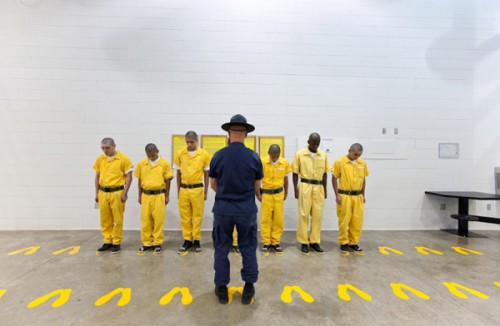




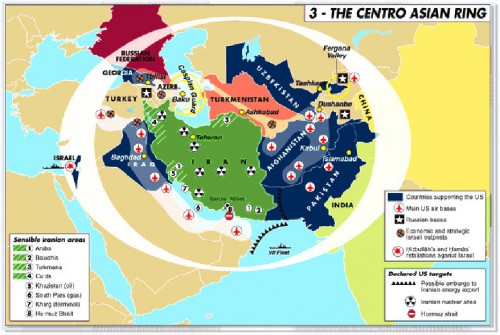

 del.icio.us
del.icio.us
 Digg
Digg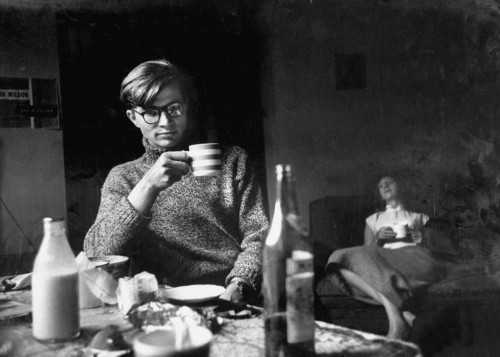
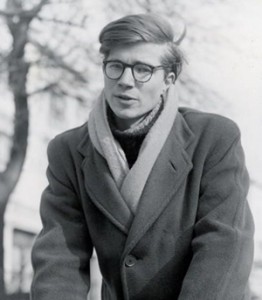 Colin wrote two autobiographies: the first,
Colin wrote two autobiographies: the first, 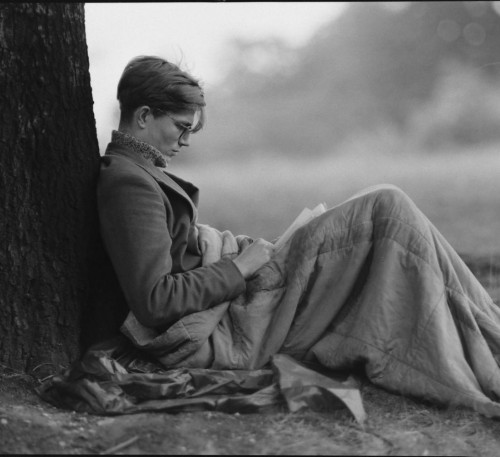
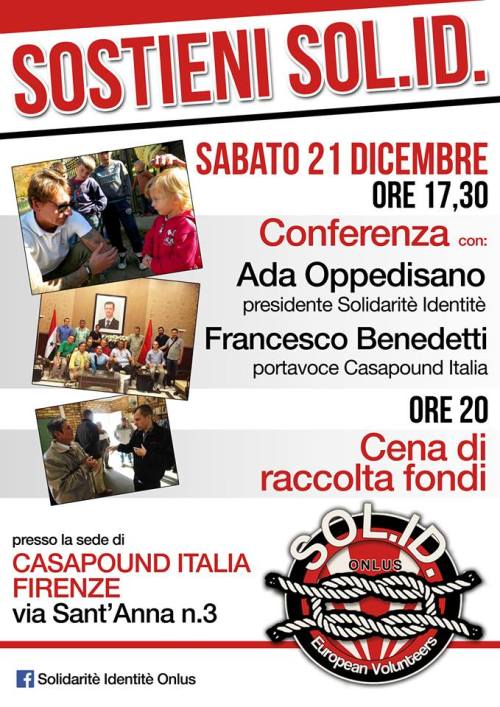


 Nous avons déjà fait une rapide incursion dans le discours de Vladimir Poutine devant la Douma, le 12 décembre dernier. C’était dans un texte du
Nous avons déjà fait une rapide incursion dans le discours de Vladimir Poutine devant la Douma, le 12 décembre dernier. C’était dans un texte du 

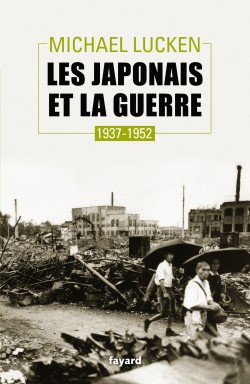 Michael Lucken est professeur des université près l'Institut des langues et des civilisations orientales, spécialiste de l'art japonais, spécialité qui est une des pièces maîtresse du dispositif analytique et des sources exploitées par l’auteur pour saisir notamment les mécanismes psychologiques ayant animé les Japonais pendant la guerre de l'Asie-pacifique et l'immédiat après-guerre (fin de l'occupation américaine). Rien de plus précieux en effet, en une période où la parole publique n'est pas nécessairement libre, que de recourir aux sources littéraires, graphiques et visuelles pour saisir l'ampleur affective du drame, son appropriation par les Japonais et son instrumentalisation par les pouvoirs politiques nippons et américains.
Michael Lucken est professeur des université près l'Institut des langues et des civilisations orientales, spécialiste de l'art japonais, spécialité qui est une des pièces maîtresse du dispositif analytique et des sources exploitées par l’auteur pour saisir notamment les mécanismes psychologiques ayant animé les Japonais pendant la guerre de l'Asie-pacifique et l'immédiat après-guerre (fin de l'occupation américaine). Rien de plus précieux en effet, en une période où la parole publique n'est pas nécessairement libre, que de recourir aux sources littéraires, graphiques et visuelles pour saisir l'ampleur affective du drame, son appropriation par les Japonais et son instrumentalisation par les pouvoirs politiques nippons et américains. 

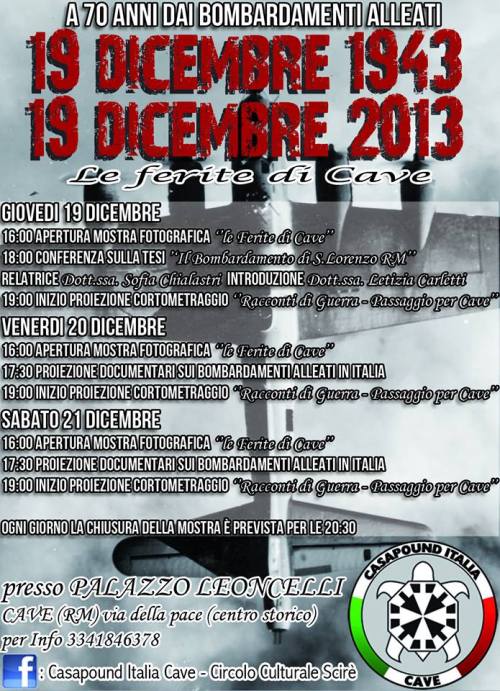

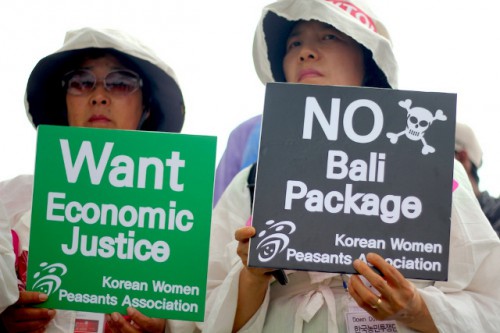
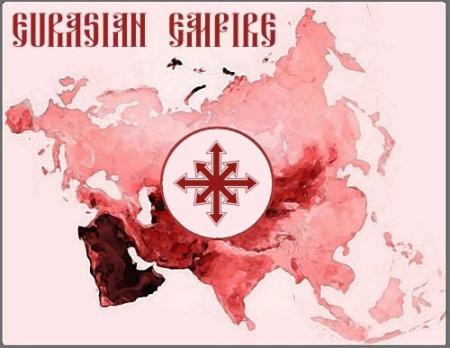
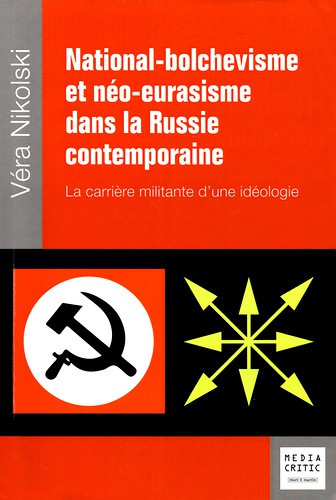 An ethnos is in general any set of individuals, any “collective”: people, population, nation, tribe, family clan, based on a common historical destiny. “Our Great-Russian ancestors–wrote Gumilev–in the 15th, 16th and 17th centuries easily and rather quickly mixed with the Volga, Don and Obi Tatars and with the Buriates, who assimilated the Russian culture. The same Great-Russian easily mixed with the Yakuts, absorbing their identity and gradually coming into friendly contact with Kazakhs and Kalmucks. Through marriage links they pacifically coexisted with the Mongols in Central Asia, as the Mongols themselves and the Turks between the 14th and 16th centuries were fused with the Russians in Central Russia.” Therefore the history of the Muscovite Rus’ cannot be understood without the framework of the ethnic contacts between Russians and Tatars and the history of the Eurasian continent.
An ethnos is in general any set of individuals, any “collective”: people, population, nation, tribe, family clan, based on a common historical destiny. “Our Great-Russian ancestors–wrote Gumilev–in the 15th, 16th and 17th centuries easily and rather quickly mixed with the Volga, Don and Obi Tatars and with the Buriates, who assimilated the Russian culture. The same Great-Russian easily mixed with the Yakuts, absorbing their identity and gradually coming into friendly contact with Kazakhs and Kalmucks. Through marriage links they pacifically coexisted with the Mongols in Central Asia, as the Mongols themselves and the Turks between the 14th and 16th centuries were fused with the Russians in Central Russia.” Therefore the history of the Muscovite Rus’ cannot be understood without the framework of the ethnic contacts between Russians and Tatars and the history of the Eurasian continent.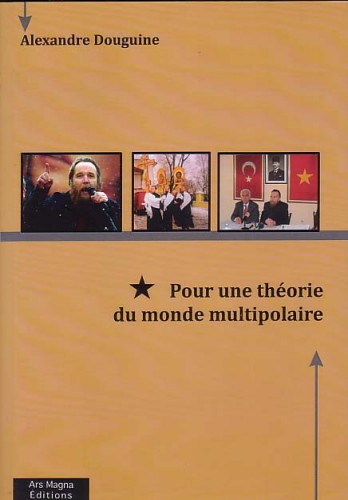 At the theoretical level neo-eurasism consists of the revival of the classic principles of the movement in a qualitatively new historical phase, and of the transformation of such principles into the foundations of an ideological and political program and a world-view. The heritage of the classic eurasists was accepted as the fundamental world-view for the ideal (political) struggle in the post-Soviet period, as the spiritual-political platform of “total patriotism.”
At the theoretical level neo-eurasism consists of the revival of the classic principles of the movement in a qualitatively new historical phase, and of the transformation of such principles into the foundations of an ideological and political program and a world-view. The heritage of the classic eurasists was accepted as the fundamental world-view for the ideal (political) struggle in the post-Soviet period, as the spiritual-political platform of “total patriotism.”
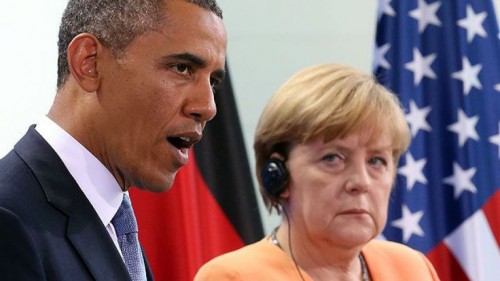
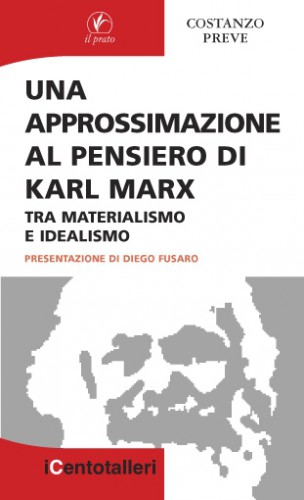 Le grand philosophe italien, Costanzo Preve nous a quitté fin novembre. Né à Valence en 1943, il est décédé ce 23 novembre à Turin. C'était sans doute, pour nous,le dernier marxiste vivant, le dernier en tout cas qui mérite fortement cette appellation de par sa rigueur d'analyse et son absence de compromissions, l'exact opposé des marxistes français comme Alain Badiou ou Etienne Balibar totalement asservis aux idéologies du capital et incapables d'avoir saisi en temps réel la manipulation du ''grand remplacement'', l'aliénation de l'immigration et des sans papiers comme armée de réserve du capital, bataillons de la bourgeoisie française, fossoyeurs de l'identité européenne.
Le grand philosophe italien, Costanzo Preve nous a quitté fin novembre. Né à Valence en 1943, il est décédé ce 23 novembre à Turin. C'était sans doute, pour nous,le dernier marxiste vivant, le dernier en tout cas qui mérite fortement cette appellation de par sa rigueur d'analyse et son absence de compromissions, l'exact opposé des marxistes français comme Alain Badiou ou Etienne Balibar totalement asservis aux idéologies du capital et incapables d'avoir saisi en temps réel la manipulation du ''grand remplacement'', l'aliénation de l'immigration et des sans papiers comme armée de réserve du capital, bataillons de la bourgeoisie française, fossoyeurs de l'identité européenne.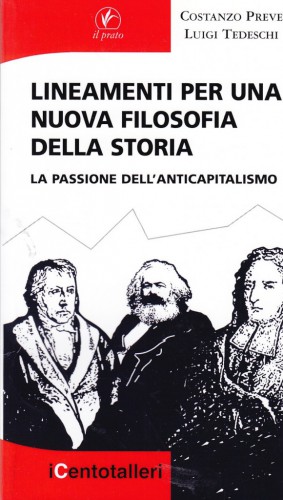 En fait, peu connaissent en dehors du cercle étroit des schmittiens, la profondeur du travail intellectuel de Costanzo Preve, l'importance de son analyse critique. Le philosophe italien n'était pas un sorbonnard ou un agrégatif mais un résistant au pied de la lettre et au chevet de la lutte, un vrai camarade, un authentique compagnon, un dissident. La formation intellectuelle est la condition de toute action. Il ne saurait y avoir de résistance culturelle sans dialectique. Dans une telle formation, le marxisme est aussi une priorité méthodologique. Comme il faut lire Dominique Venner, il faut faire lire Costanzo Preve à tout candidat de l'esprit critique. Bien sûr, la pensée unique universitaire attaquera les idées d'un Costanzo Preve mais c'est parce que de telles idées peuvent la faire descendre de son piédestal et la vaincre de par sa méthode et sa rigueur scientifique. Les idées dissidentes sont larges et il y a en fait une infinité de penseurs oubliés, de syndicalistes inconnus, d'économistes à relire (nous pensons par exemple au protestant Charles Gide).
En fait, peu connaissent en dehors du cercle étroit des schmittiens, la profondeur du travail intellectuel de Costanzo Preve, l'importance de son analyse critique. Le philosophe italien n'était pas un sorbonnard ou un agrégatif mais un résistant au pied de la lettre et au chevet de la lutte, un vrai camarade, un authentique compagnon, un dissident. La formation intellectuelle est la condition de toute action. Il ne saurait y avoir de résistance culturelle sans dialectique. Dans une telle formation, le marxisme est aussi une priorité méthodologique. Comme il faut lire Dominique Venner, il faut faire lire Costanzo Preve à tout candidat de l'esprit critique. Bien sûr, la pensée unique universitaire attaquera les idées d'un Costanzo Preve mais c'est parce que de telles idées peuvent la faire descendre de son piédestal et la vaincre de par sa méthode et sa rigueur scientifique. Les idées dissidentes sont larges et il y a en fait une infinité de penseurs oubliés, de syndicalistes inconnus, d'économistes à relire (nous pensons par exemple au protestant Charles Gide). 
